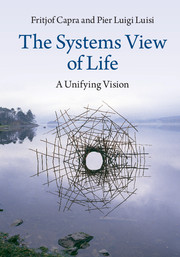Preface
Published online by Cambridge University Press: 05 April 2014
Summary
As the twenty-first century unfolds, it is becoming more and more evident that the major problems of our time – energy, the environment, climate change, food security, financial security – cannot be understood in isolation. They are systemic problems, which means that they are all interconnected and interdependent. Ultimately, these problems must be seen as just different facets of one single crisis, which is largely a crisis of perception. It derives from the fact that most people in our modern society, and especially our large social institutions, subscribe to the concepts of an outdated worldview, a perception of reality inadequate for dealing with our overpopulated, globally interconnected world.
There are solutions to the major problems of our time; some of them even simple. But they require a radical shift in our perceptions, our thinking, our values. And, indeed, we are now at the beginning of such a fundamental change of worldview in science and society, a change of paradigms as radical as the Copernican revolution. Unfortunately, this realization has not yet dawned on most of our political leaders, who are unable to “connect the dots,” to use a popular phrase. They fail to see how the major problems of our time are all interrelated. Moreover, they refuse to recognize how their so-called solutions affect future generations. From the systemic point of view, the only viable solutions are those that are sustainable. As we discuss in this book, a sustainable society must be designed in such a way that its ways of life, businesses, economy, physical structures, and technologies do not interfere with nature's inherent ability to sustain life.
- Type
- Chapter
- Information
- The Systems View of LifeA Unifying Vision, pp. xi - xiiPublisher: Cambridge University PressPrint publication year: 2014

